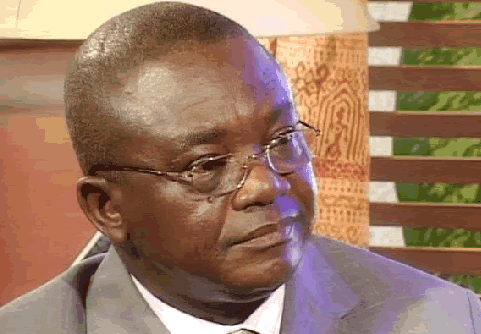Ghana’s Assets Declaration Regime is ineffective – former Auditor-General

The current Assets Declaration Regime (ADR) in Ghana is not an effective anti-corruption tool for combating corruption in the country, Professor Edward Dua Agyeman, a former Auditor-General has stated.
He said the general consensus was that the 1992 Constitution and Act 550 of 1998 needed to be reviewed and amended to make the ADR in Ghana more potent to combat public sector corruption.
Prof Dua Agyeman said this in his presentation at a roundtable organised by the Institute of Economic Affairs on the theme: “Fighting Corruption in the Public Sector of Ghana: The Role of assets declaration”.
On the main aims of the ADR, Prof Dua Agyeman said it was to increase transparency and the trust of citizens in public administration, help heads of public institutions prevent conflicts of interest among their employees and to resolved such situations when they arise and to monitor wealth variations of individual politicians and public office holders”.
He pointed out that corruption involves both the public sector and private sector alike; declaring that “in Ghana corruption has been with us since the pre-colonial days and has even become endemic throughout the various governments since independence”.
He said several strategies had been implemented to curb the scourge of corruption in Ghana, adding that ADR had been found as an effective tool for combating corruption in the public sector in many countries around the globe.
Prof Dua Agyeman said the current ADR was unsatisfactory and not potent enough as a tool to combat corruption; adding that “the current laws do not allow the Auditor-General to open the sealed envelope”.
He said the laws do not allow public access to information on compliance: stating that the sealed envelope could only be opened upon a court order.
Prof Dua Agyeman said the filing frequency gap of the ADR was found to be too wide.
He said there was no application of sanctions for non-submission, late submission and false declarations.
He mentioned that government and Parliament had not shown sufficient political will and commitment to promote the ADR.
He said in the fight against corruption, there were historical, cultural and religious challenges to overcome, such as offering and receiving of gifts and their religious implications.
He recommended that government and Parliament should demonstrate political will and commitment, and amend Chapter 24 of the 1992 Constitution and Act 550.
He noted that as a transitional provision, any amendment to the existing law should include training workshops for public officials.
He said coverage of the ADR should extend to all public officials who exercise discretion over public funds and or take legislative decisions.
Prof Dua Agyeman said coverage should include all individuals closely connected with the public officials such as spouses and dependent children.
He suggested that explicit and severe sanctions must be applied to those who fail to comply with the assets declaration law.
He mentioned that the law should give the Auditor-General the mandate to verify the accuracy of information in the declaration and gazette the contents of the declaration within 30 days of receiving the declaration.
He said the public should be given guidelines on how to access the declaration and the procedure for reporting false declarations to the Auditor-General
Prof Dua Agyeman urged the government to endeavour to adequately resource the public anti-corruption institutions; adding that “This is to ensure that they function effectively and efficiently in the discharge of their assets declaration mandate”.
He also recommended that the Assets Declaration form should be redesigned to ensure that the income section could be verified against the income declared to other government agencies such as the Ghana Revenue Authority’s income tax returns.
He said the Assets Declaration form should be made available on-line for downloading and eventually up-graded to facilitate on-line submission by the official to the Auditor-General.
The former Auditor-General said non-governmental organizations and the media should be encouraged and supported to sustain their anti-corruption programmes.
Mr Daniel Yao Domelevo, the Auditor-General, said the asset declaration process for public officials in Ghana, in its current form was ineffective in the fight against corruption, describing it as a ‘complete joke’.
He urged the country to scrap the current arrangement of ADR as it serves no purpose.
He said there was the need for the adoption of a more robust and effective system to fight public sector corruption.
He said the current ADR was rather a means “for asset concealment”.
Mr Justice Emile Short, a former Commissioner of the Commission for Human Rights and Administrative Justice (CHRAJ), urged all and sundry to put pressure on the government and the legislature to amend the legislation; “so it becomes effective, and so that it cannot be described as asset concealment but asset declaration”.
Source: GNA
